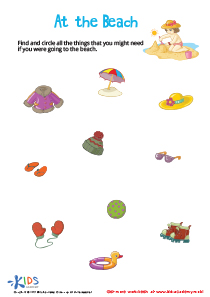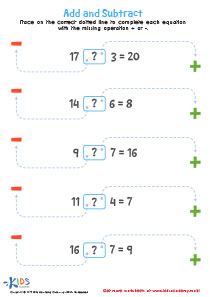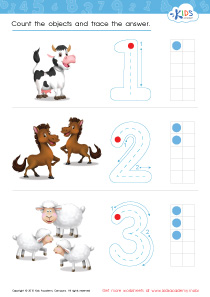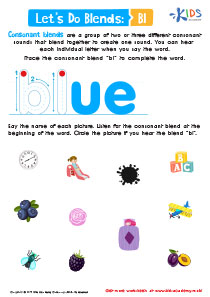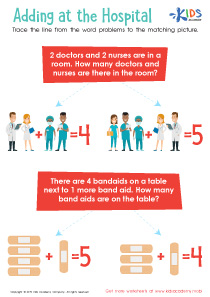3 results
3 filtered results
Clear all filters3 filtered results
-
From - To
Unlock the world of numbers for your little ones with our engaging interactive assessment quizzes, specially designed for children aged 3-5. Focusing on the foundational numbers 4 and 5, our quizzes offer a fun, interactive way to assess and reinforce your child's understanding of these essential numerical concepts. Through a series of captivating questions and instant feedback, children will not only learn but also gain confidence in their counting skills. Tailored for Ages 3-5, these quizzes ensure a supportive and enjoyable learning environment, making the journey of discovering the magic of 4 and 5 an unforgettable adventure for your preschooler.
How Interactive Quizzes on 4 and 5 Are Transforming Learning for Ages 3-5
In the foundational years of childhood, ages 3-5 play a pivotal role in shaping cognitive abilities, critical thinking, and a lifelong love for learning. Recognizing the immense potential of interactive learning, educational experts have crafted quizzes specifically on the concepts of 4 and 5, making them not just a tool for assessment but a gateway to a richer, more engaging educational experience for young learners.
Tailored Learning Experience
Firstly, these interactive quizzes on 4 and 5 are meticulously designed with the cognitive abilities of ages 3-5 in mind. This age group is at a crucial stage of development, where they are beginning to understand numbers, patterns, and relationships. The quizzes offer a tailored learning experience that matches their developmental stage, ensuring that the concepts of 4 and 5 are introduced in a fun, engaging, and age-appropriate manner.
Boosting Confidence with Immediate Feedback
One of the standout features of these quizzes is the immediate feedback mechanism. As children interact with the quizzes, they receive instant responses to their answers. This instant feedback is vital for ages 3-5, as it helps them understand the concepts of 4 and 5 more deeply while also boosting their confidence. They learn from their mistakes in real-time, which encourages a positive attitude towards learning and problem-solving.
Engagement Through Interactivity
The quizzes are designed to be interactive, ensuring that children are not passively receiving information but are actively engaged in their learning process. This interaction is key to maintaining the attention and interest of children ages 3-5, who are naturally curious and eager to explore. Through games, puzzles, and interactive questions, the quizzes on 4 and 5 make learning a dynamic and enjoyable journey, far removed from the mundanity of rote learning.
Foundational Skills for Future Learning
Moreover, engaging with these quizzes helps children develop foundational skills that are essential for their future educational journey. Beyond understanding the numbers 4 and 5, they enhance their problem-solving skills, improve their attention to detail, and foster an early love for mathematics. These skills are not only crucial for academic success but are also valuable life skills that will benefit them beyond the classroom.
Promoting Independent Learning
Lastly, these interactive quizzes empower children ages 3-5 to take charge of their learning. With intuitive interfaces designed for young learners, children can navigate through the quizzes independently, making choices, and attempting answers on their own. This early experience of autonomous learning plays a significant role in fostering independence, self-reliance, and a proactive approach to education.
Conclusion
In conclusion, the interactive quizzes on 4 and 5 are more than just educational tools; they are a catalyst for developing a deeper understanding, fostering confidence, and igniting a passion for learning in children ages 3-5. By leveraging the power of interactivity, immediate feedback, and tailored learning experiences, these quizzes are setting young learners on a path to academic success and lifelong curiosity. In the formative years of childhood, embracing such innovative learning methods can make a profound difference in how children perceive and engage with the world of numbers.
